Dusti Bridges
Dusti Bridges is a PhD student in the Department of Anthropology minoring in American Indian and Indigenous Studies at Cornell University. As an archaeologist, her interests lie primarily in 17th and 18th century Indigenous communities in Northeastern North America, particularly those of the Haudenosaunee. Her research focuses on migrations and community restructurings following European exploration, trade, and colonization. Through this work she investigates processes that strengthen community ties and encourage resilience in displaced and diasporic populations, and explores the long-term effects of movement due to violence among relocated communities and those with whom they have taken residence. Dusti is currently using her background in geographic information systems to support the contributors and research of this project.


Mike Charles
Michael Charles is an assistant professor with the Department of Biological and Environmental Engineering at Cornell University. He is also an affiliated faculty member with the American Indian and Indigenous Studies Program and is Diné, a citizen of Navajo Nation. Dr. Charles earned his B.S. in Chemical and Biomolecular Engineering from Cornell University before completing his graduate studies (M.S. and Ph.D.) at The Ohio State University. His research focuses on computational sustainable design, ecological modeling, systems optimization, and community engagement, particularly with Indigenous communities. Broadly, Charles’ work revolves around the intersection between computational research, community needs, and collaborative engagement with localized and Indigenous knowledge systems. Along with his research, he works with the International Indigenous Peoples’ Forum on Climate Change to advocate for Indigenous rights, leadership, and self-determination within UN Climate Negotiations.
Eric Cheyfitz
Eric Cheyfitz is the Ernest I. White Professor American Studies and Humane Letters at Cornell University, where he is on the faculty and former director of the American Indian and Indigenous Studies Program. His scholarship and teaching focus on the force of settler colonialism on Indigenous peoples and their ongoing resistance in the form of alternative ways of thought and action to the predatory capitalism embedded in settler existence. With this focus in mind, he has lately been publishing work on the intersectionality of settler colonialism in Native America and Palestine. His latest book is The Disinformation Age: The Collapse of Liberal Democracy in the United States, the final chapter of which “Thinking from a Different Place: What is a Just Society?” proposes an Indigenous alternative to capitalism’s failure to provide a democracy of social justice.
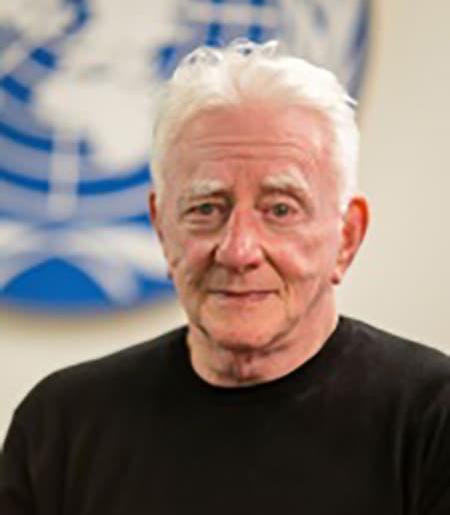
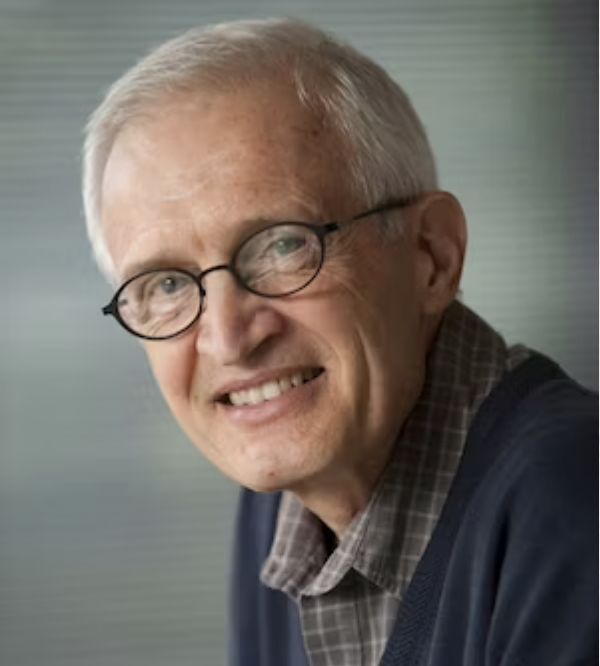
Charles Geisler
An emeritus professor of Development Sociology at Cornell, Charles Geisler focused his research on land appropriation and terra nullius narratives, along with their human displacement and alienation consequences.
Marina Johnson-Zafiris
Marina (Kanien’kehá:ka/Mohawk) is a third year PhD Student at Cornell University in Information Science, with a minor in American Indian and Indigenous studies. Her research interests focus on 1) computational community science and technological interventions for industrial accountability and socio-environmental justice and 2) critical data/information studies across Haudenosaunee Territory. She is currently advised by Chris Csíkszentmihályi and a part of the Redistributive Computing Systems group.


Kurt Jordan
Kurt A. Jordan is Associate Professor of Anthropology and American Indian and Indigenous Studies at Cornell University, former faculty director of the American Indian and Indigenous Studies Program (AIISP) and Cornell Institute of Archaeology and Material Studies (CIAMS). His research centers on the archaeology and history of Haudenosaunee peoples in the Finger Lakes region, emphasizing Onöndowa´ga:´ (Seneca) settlement patterns, housing, and economies during the 17th and 18th centuries and the long-term indigenous occupation around Cayuga Lake. He was one of the leading initiators of the Cornell University and Indigenous Dispossession Projects.
Leslie Logan
Leslie Logan (Onöndowa’ga:’/Seneca) is the Associate Director of the American Indian and Indigenous Studies Program. She is a writer and PR consultant, and a regulatory manager with the Seneca Gaming Authority with Seneca Gaming. Leslie is a contributing writer to Indian Country Today, and has written for the Smithsonian Institution’s National Museum of the American Indian magazine American Indian, Native Americas, Aboriginal Voices, Indigenous Woman, The Turtle Quarterly, and chapters in several Native-themed anthologies. She has served as communications director for the Seneca Nation and the Saint Regis Mohawk Tribe, was managing editor of the award-winning quarterly Native Americas at Cornell University and served on the board of the Seneca Iroquois National Museum.
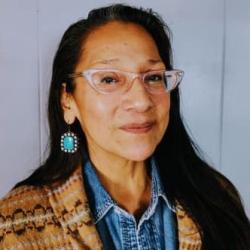

Meredith Palmer
Meredith Alberta Palmer (Six Nations Tuscarora) is a Assistant Professor in the Department of Geography and the Department of Indigenous Studies at the University at Buffalo, SUNY. Prior to professorship, she was a postdoctoral associate in the Department of Science & Technology Studies at Cornell where she is hosted by Professor Suman Seth, and the American Indian and Indigenous Studies Program where she is co-hosted by Professor Jolene Rickard. She received her PhD in Geography from UC Berkeley in 2020, and MPH from UC Berkeley’s School of Public Health in 2015. Meredith received her BS from Cornell University, in Development Sociology.
Jon Parmenter
Jon Parmenter is an associate professor in Cornell’s department of History. I am a historian of early North America specializing in the history of Indigenous peoples of what is now the northeastern United States and eastern Canada. My research interests center on the relationships of Indigenous nations to their spatial environments, the subject of my first monograph The Edge of the Woods: Iroquoia, 1534-1701 (2010). I have published article-length studies in Diplomatic History, William and Mary Quarterly, and the Journal of Early American History. Most recently I have published a peer-reviewed essay on “Indigenous Nations and US Foreign Policy” for the Oxford Research Encyclopedia of American History. Since September 2021 I have also been active in preparing reports and providing expert testimony in several Canadian court cases pertaining to Indigenous nations’ treaty rights and land claims.

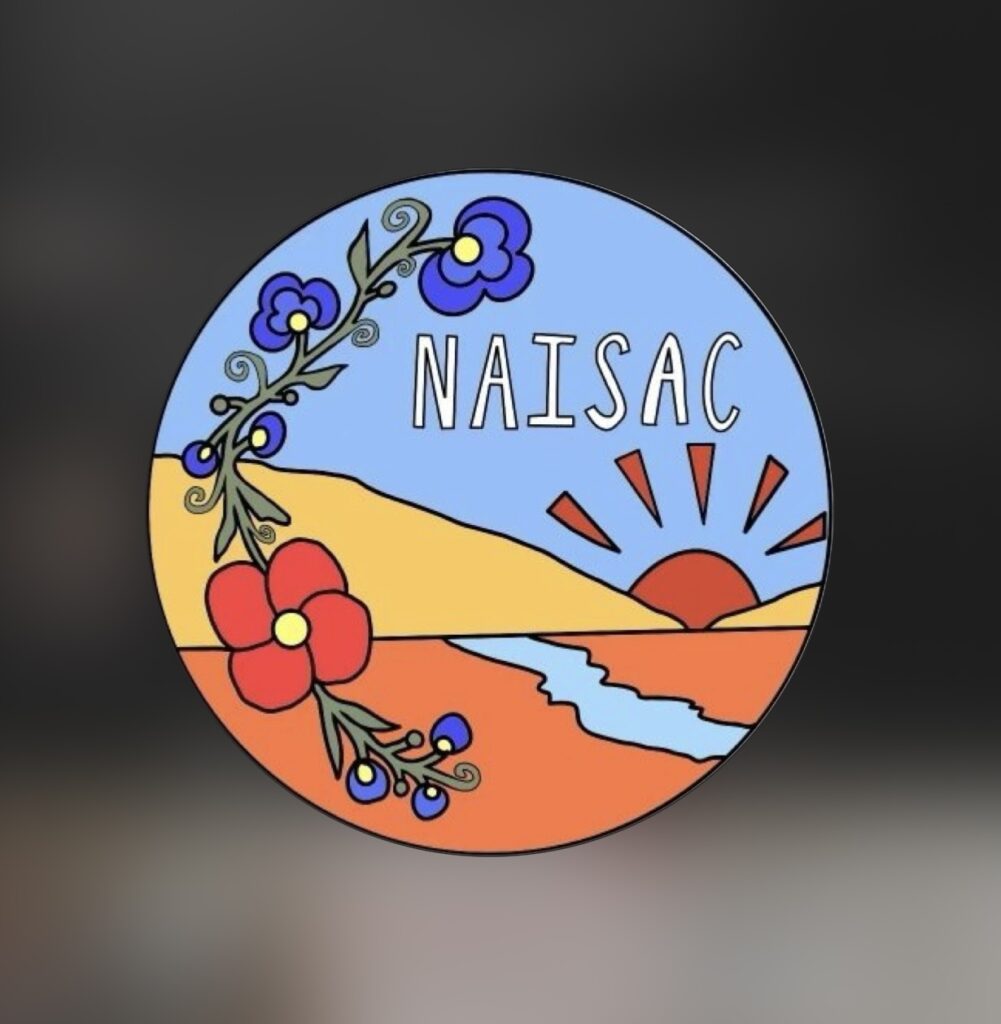
Native American and Indigenous Students at Cornell
NAISAC Mission Statement: Native American and Indigenous Students at Cornell (NAISAC) exists to promote and preserve understanding of Indigenous cultures of the Americas, to raise awareness of Indigenous issues, and to foster networks among American Indians, Alaska Natives, Native Hawaiians, First Nations, and other Indigenous students and alumni of Cornell University.
Urszula Piasta-Mansfield
Dr. Piasta-Mansfield is the Assistant Director of Recruitment and Access for the Graduate School. She is a scholar, whose primary research interests focus on the discourses of dispossession of North American Indigenous Peoples with the special attention to the Seneca Nation of the Haudenosaunee Confederacy. Her scholarly pursuits also include the Haudenosaunee colonial history and land relationships, settler colonialism, discourses of land tenure and indigenous land rights as well as the theory of place and space production, resistance movements, indigenous methodologies and epistemologies, federal Indian policy and law, and most recently the relationships between Indigenous dispossession, American public domain lands and the Land Grant Universities, as well as the history of American Indian Program at Cornell in connection with the Haudenosaunee communities in the 20th century.

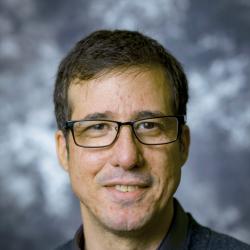
Troy Richardson
Troy Richardson (Saponi, Ska:rù:rę’/Tuscarora) is the Faculty Program Director and an Associate Professor at the American Indian and Indigenous Studies Program. His current research and teaching take up the Philosophies of Colonialism, with specific attention to the variety of ways the discipline of philosophy has and continues to work toward the ongoing dispossession of Indigenous peoples. Through this work, Troy continues to be attentive to the challenges and possibilities for relational ethics between Indigenous, settler and arrivant peoples in education and research.
David Strip
A graduate of Cornell University’s operations research department, Dr. Strip spent three decades working at Sandia National Laboratories in Albuquerque, where he worked in R&D management, modeling and mathematics, and massively parallel computing. He has a dozen patents across a variety of domains. Since retiring from the labs, Dr. Strip volunteered as a site steward for the Santa Fe National Forest, served as a board member for the Hopi Education Endowment Fund, and is an on-call scientist for the American Association for the Advancement of Science (AAAS) Human Rights Program. Dr. Strip has also established a supplementary fund to support students in the American Indian and Indigenous Studies Program at Cornell.
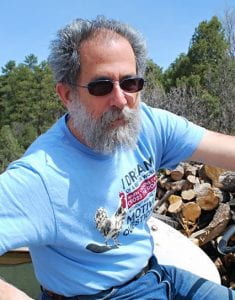

Peter Thais
Peter Thais, Mohawk, is an undergraduate studying Biological Engineering with a minor in American Indian & Indigenous Studies in CALS. He is the Co-President for the Cornell American Indian Science and Engineering Society Chapter, the Internal Relations Chair of the undergraduate student organization Native American Indigenous Students at Cornell, and the National U.S. Student Representative of AISES. His work with AISES includes student-led sessions on leadership and Indigeneity within STEM career paths and is a lead organizer of the Spring 2024 Region 6 AISES conference hosted by the Cornell chapter. He serves as the undergraduate student representative on the CU&ID Project Committee.
Shaawano Uran
Dr. Shaawano Chad Uran (White Earth Anishinaabe) is an Associate Professor of Indigenous Studies at Bemidji State University. They received a PhD in Anthropology in 2012 from the University of Iowa and has been a lecturer at Bowdoin College in Maine, the University of Victoria in British Columbia, The Evergreen State College in Washington, the University of Washington, and Cornell University in New York. Their research and writing concerns Anishinaabe language revitalization, Indigenous representation and the media, the socio-politics of music, and analysis of Zombie narratives in Indigenous and popular culture.


Fred Wein
Dr. Fred Wien has an Honours B.A. in Political Studies and Spanish from Queen’s University (1962-66), and an M.S. and PhD. in Development Sociology, Government and Latin American Studies from Cornell University (1966-71). He has been appointed at Dalhousie University since 1973 and served as Director of the Maritime School of Social Work at Dalhousie University from 1981-86. Between 1992-96, Dr. Wien served as the Deputy Director of Research at the Royal Commission on Aboriginal Peoples. His research has included work on the funding formula for First Nation child welfare agencies, strategies for addressing poverty as a determinant of First Nation health, and social assistance policy on reserve in the Maritimes. He holds a professor emeritus appointment at Dalhousie University, and was made a Member of the Order of Canada in December, 2015.
Audrey Baker
After graduating from Cornell’s Biology and Society major in 2009, Audrey Baker spent years farming and developing school garden and farm-to-school programs in Tompkins County (and Pittsburgh). After receiving a master’s degree in public affairs (MPA), she joined the founding team of Cornell’s Public Health Program in 2016. Audrey is now Manager of Applied Practice with the program and teaches a course series on professional skills, as well as an elective where students explore topics in public health and environmental justice through critical humanities. She is also a PhD student in Science and Technology Studies. Audrey grew up in Philadelphia, and now lives with her son on west hill in Ithaca.


Karishma Bottari
Karishma Bottari is a former AIISP staff assistant and CU&ID contributor. They received their BA in Archaeology from Cornell in 2019, and an MSc in Human Osteoarchaeology from the University of Edinburgh in 2021, with academic interests in repatriation, bioarchaeological ethics, and the reassessment of archaeological methodologies. Their recent work has involved the preparation of artifacts and other archaeological materials held in Cornell’s Hodinǫ̱hsǫ́:nih Archaeology Laboratory for their relocation to the Seneca National Museum.